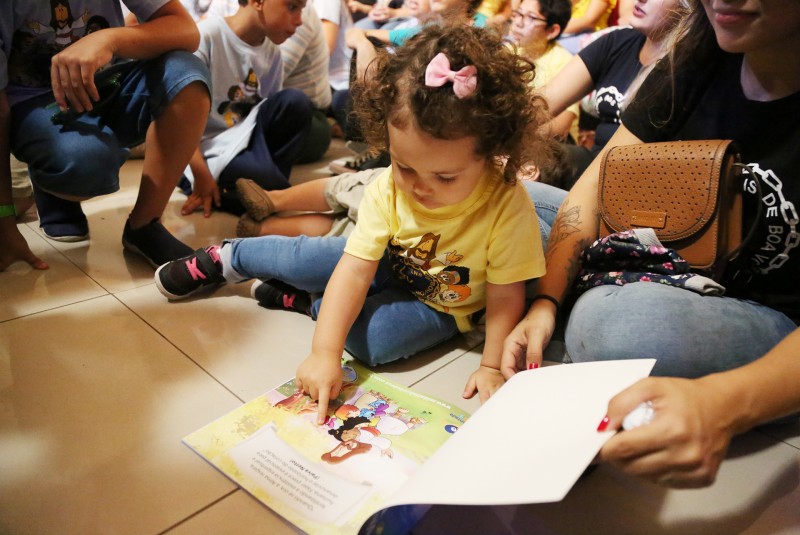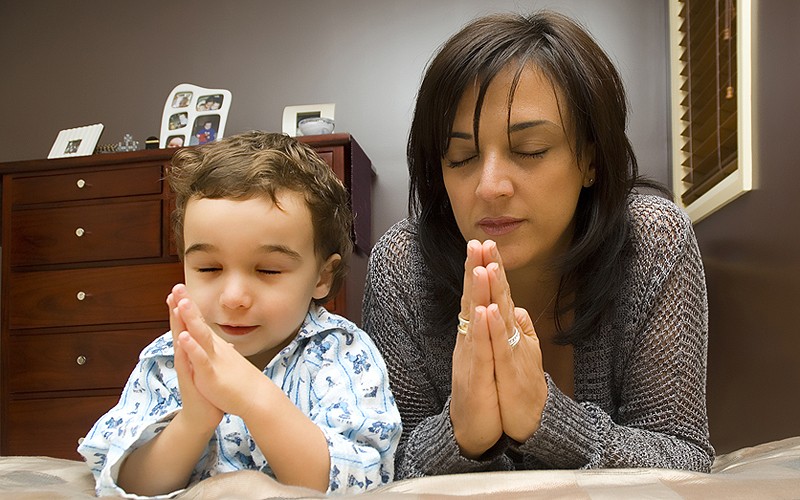3 Tips for Fostering Spirituality in Your Child
A busy routine full of commitments, financial problems, and other everyday situations may prevent you from paying proper attention to the little ones you love so much or may even chip away at the time available for closely following their development.
So if you are a mother, a father, or a legal guardian, you probably often wonder how to bring up your children in the best possible way.

When this come to mind, you may think that giving them a quality education and extracurricular activities—which are important—are enough. But how can you look after them and teach them the path of good values? Moreover, how can you teach them to deal with today’s difficulties and with those that will come in the future?
After all, children will encounter challenges at every stage in their lives. This being so, where to find effective support to fill the gaps we never want to leave in their education? Check out our 3 tips on how to foster Spirituality in your child.
1. Encouraging religiosity

Our first precious tip for fostering Spirituality in your children is to instil a sense of religiosity in them. But we are not talking here about religion in a restricted way, because religiosity exists regardless of whether we follow a particular religious tradition or not.
Religiosity “is inherent in individuals, even when they identify themselves to be atheists,” as clarifies the Religion of God, of the Christ, and of the Holy Spirit.1 This feeling, which human beings are born with, awakens fraternity, solidarity, empathy, respect, and so many other good values. After all, in a world with so many problems, who does not want to see their children growing up to become fair, honest, happy people who help everyone around them?
In the book of Proverbs 22:6, the famous king Solomon recommended that we “start children off on the way they should go, and even when they are old they will not turn from it.”
In other words, receiving an education that considers such Divine Teachings increases the probability that your children will grow up to become more self-aware adults and will make a much bigger difference in the world.
Religiosity also encourages little ones to protect themselves, since they feel strengthened and learn that they cannot, and should not, accept what is bad—both for themselves and for others. It is no wonder that educator José de Paiva Netto, the President-Preacher of the Religion of the Third Millennium, states,
“World stability begins in the hearts of children. To protect them is to believe in the future.”
Having presented this first tip, see the next two that will help strengthen and exemplify how you should live this sense of religiosity in your daily family routine.
+ Here are 3 stories that will show you how children are capable of understanding divine matters
2. Accessing Divine Knowledge
In His Holy Gospel according to Matthew 19:14, Jesus, the Ecumenical Christ, the Divine Statesman, warned,
“Let the little children come to me, and do not hinder them, for the Kingdom of Heaven belongs to such as these.”

Along with other teachings, this means that children also deserve and need to have access to divine spiritual knowledge. Children, however, are unable to do this on their own.
That is why it is up to mothers, fathers, grandparents, and legal guardians to guide them towards Christ and, consequently, towards everything that He represents: respect, generosity, humility, self-confidence, and confidence in doing what is right.
This development also provides children with safety and a sense of happiness, as the study Conceptions of Religiousity: A Child’s Perspective found. And personal well-being is an important factor for attributing greater meaning to life itself. Other studies also show that when children have this feeling of happiness they find it easier to learn new things.
To put this second tip into practice, we suggest you create at home the habits of reading, watching movies, listening to music, and playing games, for example, that uphold good values. Also, read and study together the Gospel and Apocalypse of Jesus and pray regularly (our next tip).
The Religion of God, of the Christ, and of the Holy Spirit recommends this happens at least once a week, always on the same day and time. Do this exercise! When you promote knowledge of Divine subjects, you can notice harmony and unity in your family.
3. Praying or meditating

Praying or meditating—for the Religion of the Third Millennium they are synonymous—is a strong stool for helping children turn away from the evils of this world. They will be able to say ‘no’ to everything that hurts them and others.
Explain to children that it is possible to speak to God, who is this Superior Energy above all human problems. This knowledge will give them a lot of autonomy since it will allow them to seek strength and be grateful even when the difficulties appear.
It was Christ Himself who taught us that it is possible to speak to God, when He pronounced the Ecumenical Lord’s Prayer (The Gospel according to Matthew 6:9-13). In this moment, children can ask for themselves and for their family and friends. This helps them develop generosity.
These were our 3 tips on how to foster Spirituality in your child. It is worth investing your time and effort in them and noticing their benefits. As proof that your child is able to understand these teachings and that they make a difference in his/her life, look at the three stories that we have chosen for you.
____________
1 Religion of God, of the Christ, and of the Holy Spirit — also called the Religion of the Third Millennium, and the Religion of Universal Love. This is the Ecumenical Religion of Brazil and abroad.



